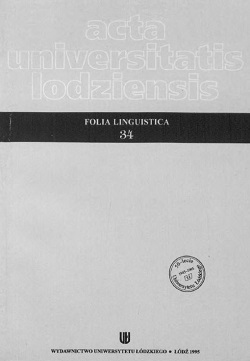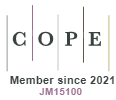Mechanizm powstawania błędów w rekcji czasownikowej (w ramach klas semantycznych czasownika)
DOI:
https://doi.org/10.18778/0208-6077.34.02Abstrakt
One of the significant contributions of structural semantics is a discovery of dependence between the meaning of the verb and its government properties. This dependence finds expression, among other things, in the tendency towards uniformization of the government of verbs belonging to the same semantic class. Errors within the verbal government are extremely frequent, which testifies to the strength and vitality of the process of uniformization.
A given semantic class usually has one type of government. If a verb belonging to this class governs a different case form, there usually follows a uniformization of its government properties, which, from the point of view of the binding language norm, is considered to be an error. In time the use of such uniformized form can become a language norm, e. g. rządzić kim, czym (to govern smb) in the Old Polish had the form of rządzić kogo, co.
In certain cases the verb may be used in an incorrect meaning - it then enters a new semantic class and takes over its type of govermnent, e. g. koordynować kim, czym (to coordinate smb) in the sense of kierować kim, czym (to direct smb); ingerować na co (to interfere in smth) in the sense of wywierać wpływ na co (to exert influence on smth).
The vitality of the uniformizations within semantic classes of the verb is additionally underscored by the fact such structures appear in the language of TV commentators, in the press, as well as in the language of schoolchildren.
The process of government uniformization is by no means limited to a particular stage of language development. It exists since the beginning of the formation of the Polish language, making uniform syntactic properties of verbs within particular semantic classes.
Pobrania
Pobrania
Opublikowane
Jak cytować
Numer
Dział
Licencja

Utwór dostępny jest na licencji Creative Commons Uznanie autorstwa – Użycie niekomercyjne – Bez utworów zależnych 4.0 Międzynarodowe.










